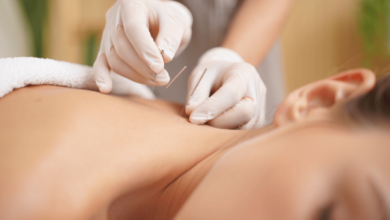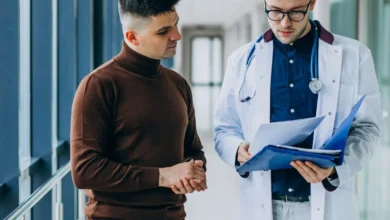What are the Common Symptoms of Piles, and When to See a Doctor?

Haemorrhoids are typically swollen and enlarged veins that form inside your anus and outside your rectum. Sometimes, they can be extremely painful and uncomfortable and can also cause rectal bleeding.
You should note that each and every one of us is born with haemorrhoids but at baseline. That is the reason why they aren’t so much bothersome. But it starts bothering us when they become enlarged and swollen and produce irritating piles symptoms.
In this article, we will quickly recapitulate piles’ primary causes and symptoms. And by the time you reach the end of the article, you will find out when you should see a doctor. Please stick to the end to know more.
Let’s delve in.
Causes of Piles
All of us are engaged with some activity or the other across the day. And while performing any straining activity, the veins around your anus might stretch under pressure. Eventually, the veins might bulge and swell.
Some of the primary causes that can pave the way for developing haemorrhoids are:
- Obesity
- Excessive straining during bowel movements
- Pregnancy
- Sitting for an excessively long time on the toilet
- Anal intercourse
- Chronic constipation or diarrhoea
- Lifting heavy weights regularly
- Consuming a low-fibre diet, etc.
Symptoms of Piles
Some of the most common piles symptoms are:
- Bleeding from the anus
- Enduring pain while sitting or straining during bowel movements
- Constant itching around the anal opening
- Protrusion of soft bulging vessels through the anus
Prolapsed haemorrhoids can be extremely painful and uncomfortable. Sometimes, you might be able to feel them bulging out of your anus. And it is when you need to push them gently back into your anus.
How to Prevent Piles?
Some of the best ways to prevent haemorrhoids are:
-
Consume Fibrous Food
Consuming fresh green vegetables, colourful fruits, and whole grains helps you wait for good health. Besides, it also helps soften the stool so it can pass smoothly without straining. Make sure you add fibre to your diet slowly to avoid significant gas problems.
-
Drink Plenty of Fluids
Drinking sufficient fluids throughout the day helps in keeping the stool soft. So you won’t have to strain during your bowel movements.
-
Stop Straining
Holding your breath and straining while passing a stool exerts greater pressure on the veins of the lower rectum. And this might elevate the risks of developing piles.
-
Incorporating Fiber Supplements in Your Diet
Many people don’t consume a sufficient amount of fibre throughout the day. Drinking 20-30 grams of fibre supplements is ideal for regularising and easing bowel movements. Supplements like chia seeds, methylcellulose, psyllium, etc., can reduce your symptoms of piles.
When you take these supplements, make sure you consume at least eight glasses of water regularly. Failing to do so, the supplements can promote or even worsen constipation.
-
Practising Yoga
Staying active and practising yoga regularly is the best way to prevent constipation. In fact, this reduces the pressure on the veins of your anus. Besides, exercising can also help you lose weight, which might contribute to your haemorrhoids.
-
Don’t Keep Your Bowel Movement Waiting
As soon as you feel the urge to pass a bowel movement, you should head towards the toilet immediately. Waiting for a long could make your urge go away and make your stool dry out. Thus, it becomes quite difficult for your stool to pass out smoothly.
-
Avoid Sitting for Longer Periods
Sitting for too long at a stretch on the toilet can deliberately increase the pressure on the veins of the anus.
When Should You See a Doctor for Piles?
If you experience minor pile symptoms, then you need not panic. However, you can consult with your healthcare provider if you suspect haemorrhoids and experience the following:
- Severe pain in the abdomen
- Fever and chills
- Diarrhoea or chronic constipation
- Nausea and vomiting
- Severe pain and bleeding through the rectum
How are Haemorrhoids Treated?
If your piles symptoms worsen or interfere with your daily life, you should consult your healthcare provider. Also, if the signs and symptoms of piles don’t improve after adhering to home treatments, you must talk to your doctor.
Some of the most common treatment methods for haemorrhoids are:
- Electrocoagulation
- Rubber band ligation
- Sclerotherapy
- Infrared coagulation
- Hemorrhoid stapling
- Hemorrhoidectomy, etc.
To Conclude
The majority of the Indian population have sought treatments for haemorrhoids at some point or the other in their lives. So, even if you are experiencing piles symptoms, don’t be too embarrassed to talk to your doctor.
Also, if the haemorrhoids are causing pain and discomfort, don’t forget to address them too. Apollo Hospitals house some remarkably talented healthcare professionals who have the potential to give you the best treatment. So, irrespective of how underconfident you are, make sure that you don’t hesitate to consult with professionals.




